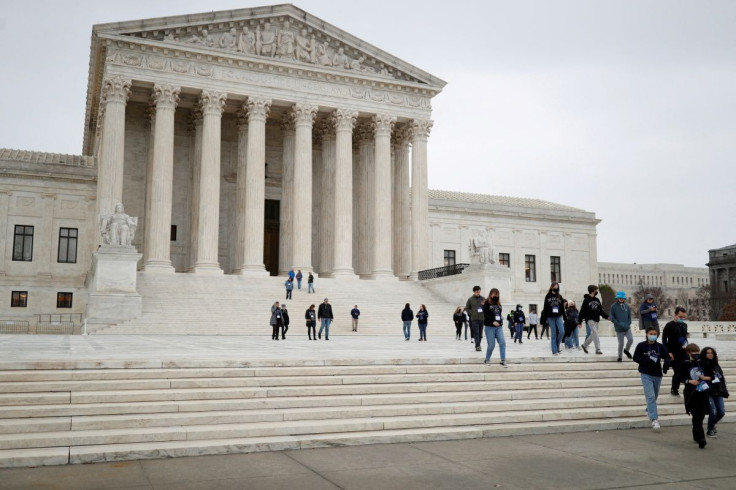U.S. Supreme Court To Hear Case That Could Boost Politicians' Power Over Elections

The Supreme Court on Thursday agreed to hear a Republican bid to reinstate a map delineating North Carolina's U.S. House of Representatives districts that was invalidated as unfair to Democrats in a major case that could expand the power of politicians over the conduct of elections.
The justices took up an appeal by the Republican state lawmakers of a February decision by North Carolina's top court to throw out the congressional map approved last year by the Republican-controlled state legislature.
The North Carolina Supreme Court determined that the boundaries for the state's 14 House districts were drawn by the legislature in a manner that boosted the electoral chances of Republicans at the expense of Democrats. It rejected Republican arguments seeking to shield legislature-drawn maps from legal attack in state courts.
In March, the U.S. Supreme Court rejected a Republican request to put on hold the lower court rulings that adopted the court-drawn map, a decision seen as boosting Democratic hopes of retaining their slim House majority in the November midterm elections in which control of Congress is at stake. Conservative Justices Samuel Alito, Clarence Thomas and Neil Gorsuch dissented from that decision.
Two groups of plaintiffs, including Democratic voters and an environmental group, sued after North Carolina's legislature passed its version of the congressional map last November. The plaintiffs argued that the map violated the North Carolina state constitution's provisions concerning free elections and freedom of assembly, among others.
The North Carolina Supreme Court struck down the map on Feb. 4, concluding in an opinion released later that the way the districts were crafted was intentionally biased against Democrats, diluting their "fundamental right to equal voting power."
A lower state court on Feb. 23 rejected a redrawn map submitted by the legislature and instead adopted a new map drawn by a bipartisan group of experts. According to some redistricting analysts, the new map includes seven Republican districts likely to be won by Republicans, six likely to be won by Democrats and one competitive seat.
The dispute is one of numerous legal battles in the United States over the composition of electoral districts, which are redrawn each decade to reflect population changes measured in a national census, last taken in 2020. In most states, such redistricting is done by the party in power, which can lead to map manipulation for partisan gain. The Supreme Court in 2019 barred federal judges from curbing the practice, called partisan gerrymandering. Critics have said that such gerrymandering warps democracy.
The North Carolina Republicans' defense of the legislature's map relies on a contentious legal theory called the "independent state legislature doctrine" that is gaining traction in conservative legal circles and, if accepted, would vastly increase politicians' control over how elections are conducted.
Under that doctrine, the U.S. Constitution gives legislatures, not state courts or other entities, authority over election rules including the drawing of electoral districts.
The doctrine is based in part on language in the Constitution stating that the "times, places and manner" of federal elections "shall be prescribed in each state by the legislature thereof." In their appeal to the Supreme Court, the Republican lawmakers decried the "state supreme court's usurpation of that authority."
The Republican lawmakers said the state court impermissibly imposed its own policy determination for how much partisanship can go into crafting congressional lines. They acknowledged that the case would have an impact beyond redistricting, extending to "the whole waterfront of voting issues, from absentee voting deadlines to witness requirements, voter ID to curbside voting."
The state's Department of Justice said in a legal filing that, contrary to the Republican lawmakers' assertions, North Carolina state law specifically authorizes state courts to review redistricting efforts.
© Copyright Thomson Reuters 2024. All rights reserved.




















